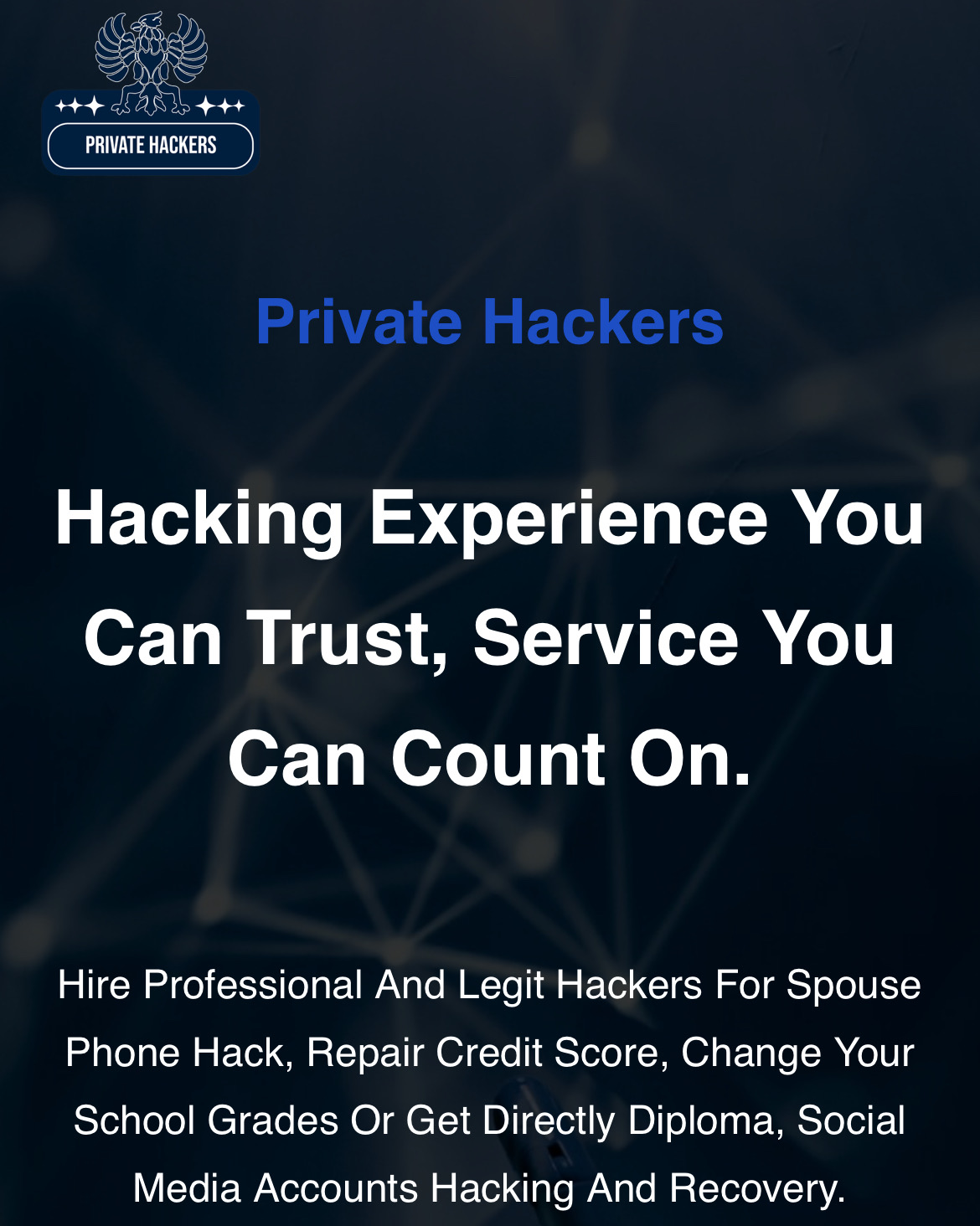How to hack a Database.

Databases hold the crown jewels of any digital operation — customer records, financial data, intellectual property, and more. But with great value comes great risk. In the wrong hands, a penetrated database can lead to identity theft, financial loss, and irreparable damage to a company’s reputation.
At Private-Hackers.com, we don’t penetrate databases for illegal gain we investigate, recover, and secure them ethically and legally. In this blog, we explain how unauthorized access to databases happens, the techniques used by attackers, and how to guard against them.
What Is Database Penetration?
Database penetration refers to the unauthorized access or manipulation of a database system, typically through exploitation of security weaknesses. While malicious actors do this for theft or destruction, cybersecurity professionals ethically simulate these attacks during penetration testing to uncover vulnerabilities before real hackers do.
Common Techniques Used in Database Penetration
Let’s break down the major techniques hackers both ethical and unethical use to penetrate databases:
1. SQL Injection (SQLi)
Overview: SQL Injection is one of the most common and dangerous forms of attack. By injecting malicious SQL queries into input fields (like login forms), attackers can manipulate the database into revealing or altering data.
Real-world consequence: Unauthorized users could extract usernames, passwords, credit card data, or even delete entire tables.
Prevention:
• Use parameterized queries
• Sanitize user inputs
• Employ Web Application Firewalls (WAFs)
2. Weak Authentication Systems
Overview: Poorly protected login systems are easy prey. Brute force attacks or dictionary attacks can crack weak passwords, especially if multi-factor authentication is not enabled.
Prevention:
• Enforce strong password policies
• Use multi-factor authentication (MFA)
• Implement account lockout mechanisms
3. misconfigured Databases
Overview: Many companies leave ports open or use default credentials (like “admin” / “admin”) for their database software, allowing easy entry for attackers.
Prevention:
• Close unused ports
• Change default usernames and passwords
• Regularly audit security settings.
4. Insider Threats
Overview: Employees with privileged access may intentionally or unintentionally compromise a database. Ex-employees with lingering access can be especially dangerous.
Prevention:
• Restrict access based on roles
• Monitor access logs
• Immediately revoke access upon termination
5. Outdated Software and Unpatched Systems
Overview: Older database management systems may have known vulnerabilities that hackers can exploit if not patched.
Prevention:
• Regularly update database software
• Subscribe to security bulletin updates
• Conduct routine vulnerability scans
6. Man-in-the-Middle (MITM) Attacks
Overview: If database connections are not encrypted, attackers can intercept the data being transmitted between servers and applications.
Prevention:
• Use SSL/TLS encryption
• Avoid public or unsecured networks for access
• Monitor for unusual traffic patterns
7. Social Engineering Attacks
Overview: Sometimes the weakest link is the human element. Hackers may trick employees into revealing credentials via phishing emails or impersonation.
Prevention:
• Train staff on cybersecurity hygiene
• Simulate phishing attacks for testing
• Verify requests for sensitive access
At Private-Hackers.com, we ethically replicate many of these penetration techniques through controlled penetration misting, vulnerability assessments, and digital forensics to help businesses:
• Identify and seal data leaks
• Recover from unauthorized access
• Secure their infrastructure against future threats
We only operate with legal consent and full transparency.
Whether it’s recovering lost access, securing critical systems, or investigating suspicious activity, our team of digital experts is ready to help.
Final Thoughts: Defense Is the Best Offense
Understanding how databases are penetrated is the first step toward preventing it. Whether you’re a small business or a large enterprise, no one is immune. But with ethical cybersecurity experts like Private-Hackers.com by your side, you can be confident that your most valuable digital assets are protected.









Name: Vanessa K.
Country: Germany
Service: Ethical Database Penetration Testing
Client Type: Mid-sized eCommerce Company
Agent: CyberOps Unit – Private-Hackers.com
As the CTO of a growing eCommerce company, I always believed our data was secure. We had firewalls, SSL encryption, and standard server monitoring. But after a small competitor suffered a breach, I realized “standard” wasn’t enough.
We decided to invest in proactive defense by hiring ethical hackers to perform a full penetration test on our customer database infrastructure. That’s when we found Private-Hackers.com.
From the first consultation, I was impressed by their professionalism and technical precision. Their team conducted:
• A full-scale black-box penetration test
• SQL injection simulation
• Privilege escalation checks
• Admin panel vulnerability scans
• Custom malware injection testing
The results shocked us.
They uncovered four critical vulnerabilities that could’ve allowed a skilled attacker to extract customer data, payment history, and internal admin credentials all without detection.
Their final report wasn’t just a list of problems it was a step by step remediation guide that helped our developers fix every flaw within a week. They even re-tested the system after patching to certify it was clean.
Private-Hackers.com quite literally saved us from what could’ve been a massive data breach and PR disaster.
If your company stores customer data even if you think you’re protected you need these guys. They don’t wait for the hack to happen. They stop it before it starts.
Name: Patrick Longman
Country: United States
Service: Digital Surveillance & Behavioral Monitoring of Ex-Spouse
Agent: Protective Intelligence Unit – Private-Hackers.com
My divorce was messy, but I never imagined how dark things would get after it was finalized.
My ex-husband had a history of anger issues, but in court, he portrayed himself as calm and responsible. As part of the custody agreement, he was allowed weekly visits with our son.
Then the phone calls started calls where he would curse, threaten me, and even suggest he “knew where I was.” He started showing up at places I hadn’t told anyone I’d be. My son told me things that frightened me, like his father having violent outbursts in the car.
The authorities said unless he acted on his threats, there was nothing they could do. But I wasn’t going to wait for that to happen. I needed to document and monitor everything legally and discreetly.
That’s when I turned to Private-Hackers.com.
Their team, led by a protective intelligence expert, took my concerns seriously and treated my case with urgency and complete confidentiality. They designed a custom digital monitoring solution that included:
• Silent GPS tracking of his movements
• Monitoring of threatening messages via WhatsApp and private emails
• Recovery of deleted messages and voice recordings
• Keyword-triggered alerts for violent language
• A real-time behavior log compiled into a court-admissible report
The data revealed that he had:
• Made multiple threats referencing harm
• Violated the custody exchange terms
• Taken our son to a bar late at night
• Installed a tracking app on my phone without consent
This evidence saved me.
With the help of Private-Hackers.com, my attorney was able to file for a restraining order and an emergency custody modification. The judge accepted the report, and my ex was ordered to undergo psychiatric evaluation before being allowed any contact.
I don’t want to think about what could’ve happened if I hadn’t acted when I did.
Private-Hackers.com didn’t just uncover dangerous behavior they helped me stop it before it escalated. They empowered me with facts, protection, and peace of mind.
If you feel unsafe or if your ex is hiding who they truly are behind closed doors, don’t wait. These professionals can uncover the truth and help you reclaim your safety.
never imagined I’d need to hire a professional hacker, but after my email and social media accounts were hacked, my entire digital life felt like it was spinning out of control. Sensitive information was leaked, and I was even blackmailed by someone I thought I could trust. I reported it to the platform, but their support was painfully slow and unhelpful.
In desperation, I found Private-Hackers.com, and from the first moment I made contact, I felt a sense of hope I hadn’t felt in weeks. Their team was incredibly professional, discreet, and most importantly effective. Within 48 hours, they recovered full access to my email and social accounts, secured all my devices, and even helped trace the source of the breach.
They didn’t just fix the problem they educated me on digital safety, offered a full surveillance audit, and gave me tools to prevent future incidents. Their ethical approach and transparency set them apart from the rest.
Thanks to Private-Hackers.com, I got my digital life back and can finally sleep peacefully again. I never thought I’d write a testimonial like this, but if you’re in a similar situation don’t wait. This team genuinely cares and knows what they’re doing.
— Stephanie R., Vancouver, Canada
Discovering betrayal is never easy, but living with constant suspicion was worse. My partner had become distant and protective of his phone, always stepping out to take calls. I tried to convince myself I was imagining things, but deep down, I knew the truth was there I just couldn’t see it.
Private-Hackers.com was recommended by a colleague who had used their services. From the very start, they were professional and kind, never making me feel embarrassed about my situation. They explained what evidence they could legally gather and how everything would remain confidential.
Within a few days, they provided me with undeniable proof screenshots of secret messages, hidden social media accounts, and a detailed timeline. It was heartbreaking, but it was also liberating.
Thanks to their help, I finally had the clarity to move forward and start rebuilding my life. If you’re questioning your partner’s loyalty, I can’t recommend Private-Hackers.com enough. They gave me answers and, ultimately, my freedom.
Rachel M., Miami, FL
Regaining Control When Our Database Was Held Hostage
“I never thought a single cyberattack could bring my entire business to its knees until it did. One morning, we logged into our company dashboard only to find every database table locked, encrypted, and inaccessible. Our customer records, inventory data, financial logs everything was gone behind a wall of ransom-ware. Panic set in. We lost hours of productivity every minute, and I could feel our reputation slipping away.
That’s when I reached out to Private-Hackers.com. From the very first call, their team was calm, professional, and laser-focused. They didn’t just talk tech they talked strategy. They explained exactly how they’d recover access, preserve data integrity, and shield us from future attacks. I felt a sense of relief I hadn’t felt all day.
Within 48 hours, their expert digital forensics team had isolated the breach, reversed the encryption, and restored access to our core databases without losing a single record. They even traced the intrusion vector and helped us patch the exact vulnerability the attackers used.
What truly sets Private-Hackers.com apart is how they treated us: not just as a client, but as people who were scared, overwhelmed, and desperate for answers. They walked us through every step, explained complex concepts in plain language, and made sure we understood how to protect ourselves going forward.
Today, our systems are secure, our customers are confident again, and we’ve implemented stronger defenses thanks to their guidance. If you ever face a database crisis, Private-Hackers.com is the team you want on your side they don’t just recover access, they restore peace of mind.”
— Marina K., CTO of TechNova Solutions